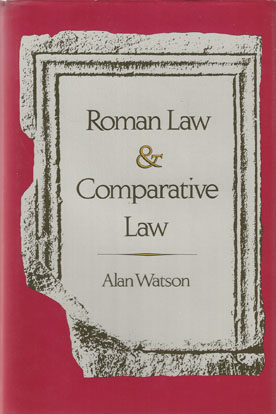
It is impossible, Alan Watson asserts, to understand how law develops and how legal rules and structures relate to society without examining the issues both comparatively and historically. And in the Western world, he adds, it is equally impossible to understand law comparatively without a knowledge of Roman law.
In this book, Watson combines his years of research in legal history with keen analytical insight to provide just such an understanding.;Watson has divided the book into two related but independent parts. The first part, a revised and enlarged version of his 1970 volume ""The Law of the Ancient Romans"", provides a comprehensive description of the system of Roman law. Watson begins with a discussion of law and the Roman mind and proceeds to such topics as slavery, property, contracts, delicts, and succession.
In part two he argues that comparative law - an area of study still in its infancy - can help us ""to identify the circumstances in which law changes, thereby uncovering the causes of legal development"".;Guided by this purpose, Watson examines the ways in which Roman law influenced later legal systems and shows how comparative law can explain the role of law in society. He ties his explication throughout to individual issues.
These include the structure of European legal systems, tort law in the French civil code, the structure of Blackstone's ""Commentaries on the Law of England"", differences in contract law in France and Germany, the parameters of judicial reasoning, lessons to be drawn from feudal law, and the interests of governments in making and communicating law.